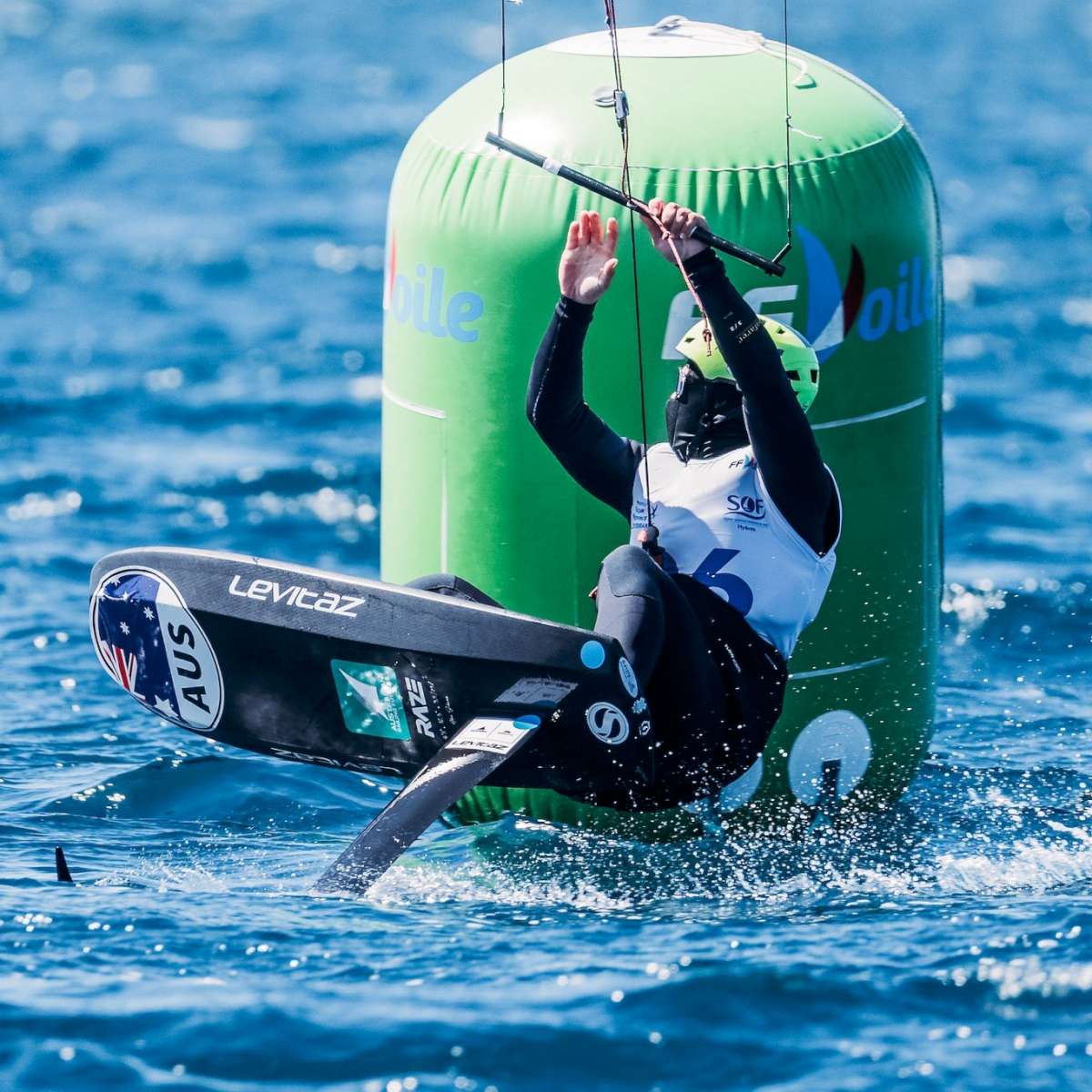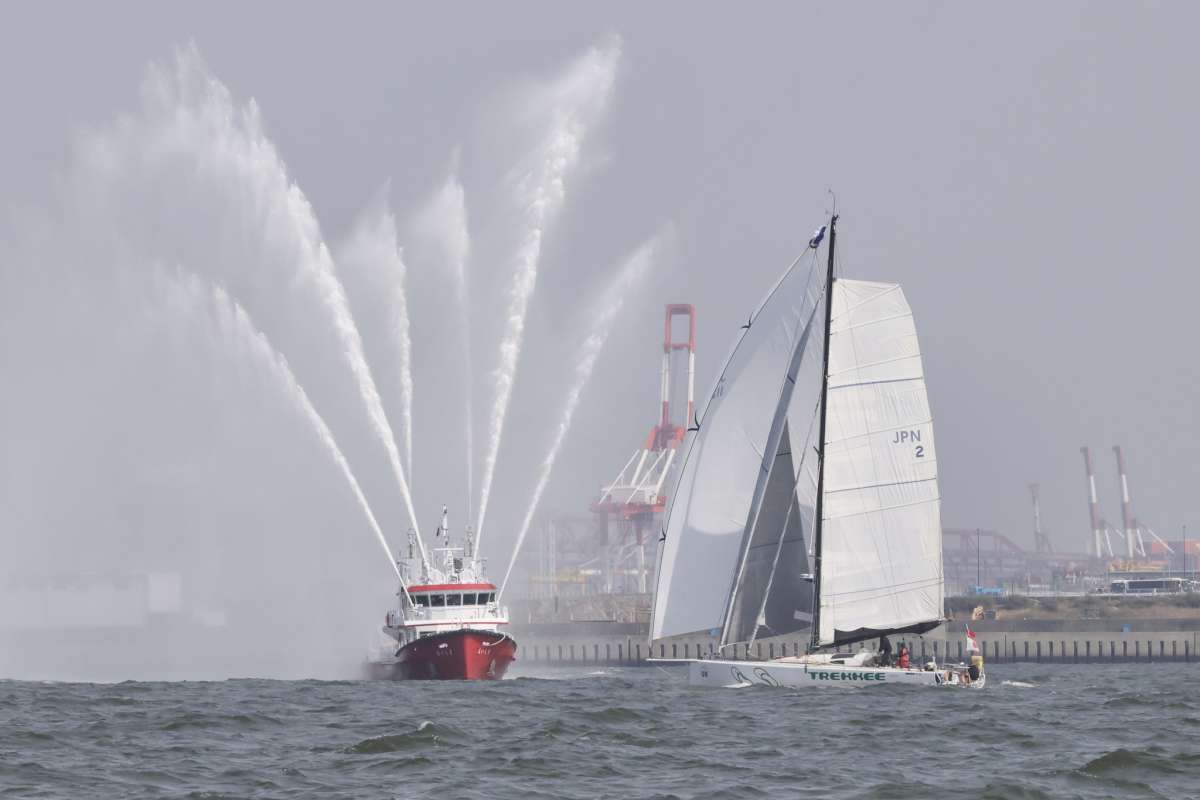Censorship in media has been around for a long time. We all like to think we live in a society where the rights of free speech are enshrined by law and by morality. Well think again, how many times have you heard someone’s comments on the radio or TV perhaps expressed a little coarsely and covered by the ever popular and cheerful ‘beep’?
This obliging little sound protects our delicate sensibilities from being subjected to vulgarity and profanity. Thoughtlessly offered curses by people who are seemingly uncaring or oblivious to the damage done to the moral fabric of society with every utterance of bad language or improper expression.
I, being of sensitive, chaste and sober disposition, am a great admirer of the beep but feel it is over-worked in maritime environments and rightfully so; if marine equipment, design and materials were simpler and realistically priced, our friend the beep would have a great deal less work. I will not address service work in this article or it will need to be censored!
Following are a few items that probably made you go beep at some stage.
Electronics, chairman of the beep
Top of our list of beep-inducing items is probably electronic gadgets; these swine have infiltrated every part of our boating lives and beyond. There is virtually no end to what these devices can do, even down to turning on bilge pumps, lights and monitoring all the rest via a mobile phone or other beeping device.
Consider a basic chartplotter these days: displaying an electronic chart, GPS position and speed etc. is not even remotely, enough. Wind speed, wind direction, depth, radar, AIS all interfaced together and overlaid is mandatory.
If your nav. unit does less than this you will indeed be categorised by your peers as a Luddite or at least referred to as “that simple guy off …” and often see neighbours sniggering behind their hands more frequently than might be considered normal.
A real chartplotter will do all of the above plus control the autopilot, stereo and calculate the best race starting strategy based on GPS positions of the start line, wind data including gusts and trends in real time and update the lot ten times per second! Yes, plus include current automatically figured into the equation with laylines calculated accordingly. Weather data can be added so you can leave the meteorologist on the dock and save another heap of weight.
Who needs Ben Ainslie on board if you have one of these beauties on Wednesday twilight? Now, finally, that weird crewmember who was the only one who could operate the countdown function on the speed log but never brought beer and cannot grind, is redundant.
Manufacturers claim these devices are easy to use and intuitive, so you conjecture there will be no problems about learning to use it.
One of the big problems with electronics is they monitor and display a lot of information. This information tells us much about the present conditions and sometimes those conditions may not be ideal for the chosen start or course; the machine is then obliged to inform us of this. Low water depth alarm, high water depth alarm, cross track error alarm, high water bilge alarm, high wind strength alarm, off course alarm, waypoint alarm and countless more. All of these alarms are signalled by beeps, which indicates to me that the machines are not pleased with us and are simulating (censoring?) bad language to indicate its displeasure.
Of all the listed alarms perhaps my personal favourite is the high wind speed alarm; if I am sailing there will be someone on watch and this someone does not need to be beeped at when the wind freshens because they are there and hopefully can still feel the wind, sea and boat motion.
The high water depth alarm may of course be useful for fishing but am yet to hear of a situation where deep water is dangerous to a boat.
I have not used the new-fangled race start systems yet but can well imagine the scene. Competitive fleet jostling around the line, crews tense and alert to the rapidly changing situation, curt commands from the helm and all of a sudden our electronic tactician senses a 0.5 degree wind shift and must alert us to the fact its perfect cybernetic strategy is being compromised. Interfaced with the autopilot, if fitted as an optional accessory, it may simply seize control of the vessel and deliver the perfect start as promised; but I am yet to hear reports of this, so it will probably just beep loudly and consistently.
This will be much needed censorship to compensate for the crews unacceptable language and will be appreciated by the race officials and more refined sailors on competing vessels.
Engines of industry
Most boats have engines and almost always a diesel engine.
This tried and true machine has a control panel of some description, required at least to start and sometimes stop the engine. Better units have gauges for important systems such as oil pressure, coolant temperature and charging current or voltage. The idea here is that you watch the gauges to ensure all is well with the engine.
I did say better units; most production boats will come as standard with a panel but this panel will be an inexpensive type and that means few gauges. Instead you get alarms and these go beep, loudly and alarmingly as is the purpose, when something has gone wrong. Note the past tense, the problem has occurred and damage is being done before you
are alerted.
This could be of no consequence if you are just charging the batteries in a calm anchorage; simply shut the engine down immediately and investigate the problem. Much more exciting if you are crossing a bar, surrounded by rock break walls with
a headwind for example, which we all know is far more likely be the case.
Of course these days all that information can be fed to our robotic master the chartplotter who will diligently, provided you have coughed up for the additional sensors and hardware, display a dazzling array of engine data that includes the basics mentioned above plus exhaust temperature, fuel consumption, oil temperature and anything else the
most obsessive engineer might covet.
All this data may also be stored; want to know what that engine cough was at 0415 on 16/03/2018, position 114.213E, 12.457N? No problem, call up the ships log, analyse the engine data and check it out.
Naturally enough you could monitor all this information from anywhere on board, via a smartphone or tablet using a wi-fi or Bluetooth connection from the plotter. In this instance, you may even be able to choose your own beep: always had a hankering for the theme song from ‘Gilligans Island’ for a high oil pressure alarm? Or Mozarts’ Requiem for a low water depth warning? Well now you can have it your way.
Batteries, tanks and bilges
The poor old bilge is traditionally a low tech component of our boat but over recent years has benefitted deservingly of an elevation in status. Now bilge systems are available that again record all the important data that emanates from that murky area.
Specifically, systems that will record all of the pumps activity, time of activation, duration of activation and volume of water removed; again this can be monitored remotely and beeps programmed to alert you to an unsatisfactory result. I can just imagine the cruisers conversations at a beach BBQ somewhere in the tropics: Sailor 1, “I’m a bit concerned, my bilge pumped for a cumulative time of 1 hour 17 minutes and 43 seconds this wet season and that was up by 4.26 per cent compared to the previous season.”
Sailor 2, “Oh beep, I’d get that looked at if I were you!”
Sailor 3, “I just downloaded a new high bilge warning alarm, the music from ‘Voyage to the bottom of the sea’. I find
it really motivational.”
Batteries are luckier than bilges; a vast range of monitors, pulse conditioners, chargers and controllers are available. Many of these items are programmable and that means warnings, some of them will even beep. If not there is always a connection potential for an optional external alarm. Low voltage, high voltage, charging current, amps out, overall charge status, percentage of charge remaining, amp hours remaining and much more can be monitored and yes, recorded, analysed and acted upon thanks to our diligent interfaced battery monitor.
Solar panel controllers, smart regulators and battery chargers can all benefit from smart connections to our chartplotter and tablet. Imagine being able to verify, or refute, the manufacturers ten year output claims for your solar panels accurately; well now you can with an investment in the correct technology.
Tanks, water, fuel and waste of course have not been overlooked and systems to make you go beep abound. My favourite has always been the holding tank monitor that flashes a red light when it is full; bit late then if you are tied up at the police wharf with Customs aboard.
Add a few more sensors and all this information can again be displayed on the mighty chartplotter or, as they are known as nowadays: a multi-function display, which seems to be a more accurate description. Watermakers have been high technology, relatively, since day one but these days are really something else: self flushing, self testing and self monitoring these babies will go beep if something goes wrong and the product water contains too much salt. If your desalinator is too small or too dumb to have a built-in tester and does not beep, fear not optional external units are available.
Information, where the beep is it!
Undoubtably information is useful to a cruising sailor and in this age it is freely available, which is a bad choice of words when writing about anything marine if you are prepared to pay for the equipment, sensors, connectors and such to install the systems.
The time required to be able to efficiently operate the device and its myriad of functions is another matter. If you are the type of person who has trouble with the DVD, and who does not, learning to use new devices is sometimes not easy and operator manuals are not always forthcoming. The direct and literal translation from a language other than English is sometimes amusing, sometimes beep inducing.
Woe to the poor fool who puts all the eggs in one basket: lose the master machine and all is lost. Just because a device is able to perform a task does not mean we really need that function. Many people spend a lot of time staring at phones and tablets for work, recreation or both; the modern chartplotter is pretty much a marine tablet and lots of sailors will be spending an increasing amount of time staring at them also.
I expect, in time, an option will exist for a black box mounted below instead of a display head that contains all the smarts, you simply connect your own display wirelessly as a lower cost option. Some beeping is advantageous on a boat: gas alarms and smoke alarms are two that seem self evident, if one of these goes off you need to do something about it, pronto.
As for the rest of it, well, some of it makes you want to go beep. ≈


























